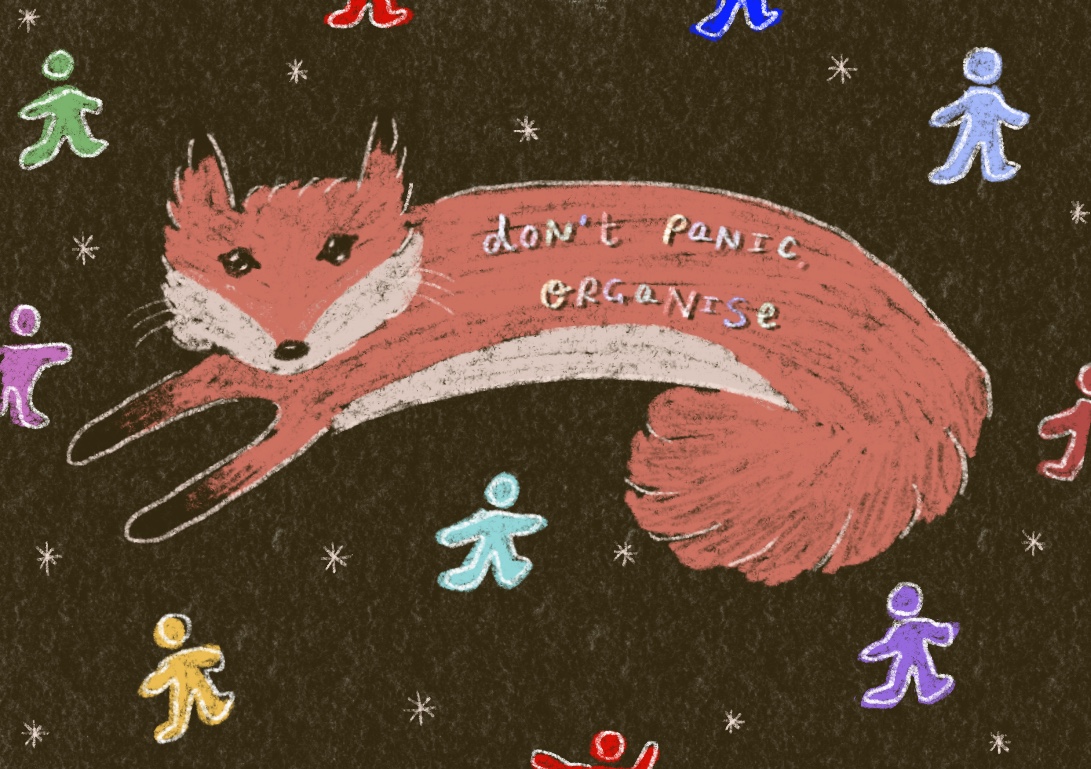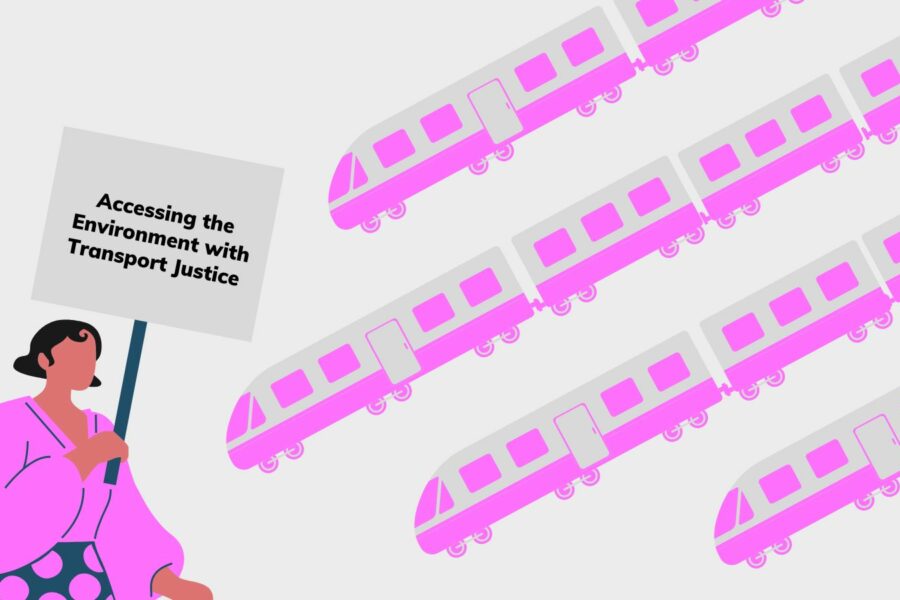Fox hunting is a countryside tradition that goes back centuries. It involves a bunch of richly dressed men, women, and children mounted on horses and accompanying a pack of hounds, tearing around the countryside in search of a fox to kill.

Hunting for Change: Why we can’t trust those in power to get anything done
In 2002 in Scotland, and 2004 in England and Wales, Acts were introduced by Parliament that banned the hunting of wild mammals with dogs (with certain exceptions). One key aspect of the legislation is that it allows for ‘drag’ or ‘trail’ hunting – laying an artificial trail of fox urine for the hounds to follow, enabling a day of horseback riding but protecting the safety of local foxes…
“I hope that they defy the police and the magistrates and the government, until a new government can rescue an old tradition and restore it for the sake of freedom and freedom alone.”
If I told you that these were the wise, encouraging, clearly law-abiding words of our one and only PM Boris Johnson, I’m sure you wouldn’t be surprised. They come at the end of a truly delightful read in The Spectator about the ‘immoral’ and ‘hateful’ introduction of a ban on fox hunting in 2005, following a concerningly visceral description of a poor horse’s rear end, and a paragraph on the end of self-involved arguments against the ban, that frankly I had to skim past because I found myself choking over how awful they were. It is now, as I’m watching the discussions at COP26 unfold, that I am brought back to this piece, and reminded that we have never, and likely will not ever, be able to trust our government to do what we need them to do. The case of fox hunting illustrates quite perfectly how the ‘elites’ in our society are able to side-track the government and manipulate law enforcement to serve their own interests, but it also shows how the power of direct action, community mobilisation, and accountability can provide us with the hefty ammunition needed in the fight for our world.
First, some context. Fox hunting is a countryside tradition that goes back centuries. It involves a bunch of richly dressed men, women, and children mounted on horses and accompanying a pack of hounds, tearing around the countryside in search of a fox to kill. In 2002 in Scotland, and 2004 in England and Wales, Acts were introduced by Parliament that banned the hunting of wild mammals with dogs (with certain exceptions). One key aspect of the legislation is that it allows for ‘drag’ or ‘trail’ hunting – laying an artificial trail of fox urine for the hounds to follow, enabling a day of horseback riding but protecting the safety of local foxes. If the hounds ‘accidentally’ catch onto a real fox trail, however, there is supposedly little that can be done to stop them from doing what they have been trained to do. For this reason, it is vital that the hunt have guns in place: men positioned, ready with rifles, in a place so that if a fox were to be chased and break cover, they can shoot it dead before the hounds reach it. A fox killed on a hunt by a shot is accepted to be a part of countryside pest control, as many argue that foxes pose a danger to sheep and chickens on local farms.
What the hunt is supposed to do and what it actually does are significantly different, however. Legislation has merely meant that hunts have had to get a little more creative with how they approach their weekly shenanigans, and finding loopholes to jump through might easily be a full-time job for some of them, they are so good at it.
And as someone who has been out there, in the field, I can tell you that not once have I ever seen a member of the hunt concerned that they may make an ‘accidental’ grisly kill, or, God forbid, break the law.
A recent story that received a substantial amount of news coverage was the case of Mark Hankinson, the director of the Master of Foxhounds Association. Earlier this year footage was leaked of a private online webinar, in which he is seen telling fellow huntspeople to use trail hunting as a ‘smokescreen’ to hide illegal hunting activity from the public and law enforcement. He emphasised that the trails need to be “as plausible as possible…in case [the case] goes to court”, illustrating quite how elaborate their plans to break the law can become. Phil Davies, police liaison for the Countryside Alliance and former chief inspector, was also seen discussing how to maximise the “element of doubt” in regard to whether the hunting is illegal or not. Following the leak, Hankinson himself was taken to court and, despite complete denial, found guilty of encouraging illegal activity, fined £1000, and charged an extra £2500 in legal costs. Many large landowners such as the National Trust, in response to concerns about trail hunting being used as a cover for illegal hunting, massively restricted hunting freedoms and licensing rules on their land. In fact, the National Trust had a recent member vote about whether to ban hunting on its land outright, which won by a significant majority. Not only that, but the League Against Cruel Sports has called for an all-round tightening of the Hunting Act in order to close those loopholes being used – and the Scottish Government is now holding a review of its hunting laws, with the potential to make them stronger! Something here is working, and I strongly hope that we can keep it up.
Public opinion still clearly stands firmly against fox hunting on the whole, and although the Tories keep talking about bringing it back completely, the majority of voters would be unhappy with this. Some members of the public are so against hunting that they sacrifice their time, energy, and potential safety to be there and save lives, out on the frontline.
Counter groups – hunt saboteurs (sabs), or monitors – were formed in order to keep tabs on hunt activity, advocate for the rights of the animals involved, and protect foxes out in the field through direct action. Driven to the extremes by the immorality and illegality of foxes being torn to shreds by starved and exploited hounds, hundreds of (extra)ordinary individuals every week head out in the cold, wet, and wind, traipsing through the countryside, doing whatever they can and hoping to make a difference. Being a sab is no joke: due to the people involved in hunting, sabs face violence out in the field, threats to their personal safety at home, breaches of privacy, potential legal consequences (whether justified or not is another matter); and, on occasion, sabs have even had their lives taken from them. A recent arson attack on naturalist Chris Packham, likely in response to his strong anti-hunt views, shows just how far hunts and their supporters will go to hammer home their views and scare activists into silence. Sab groups and animal rights organisations have still managed to shed a lot of light on some of the truly horrific things that occur during these hunts, and the work they do is vital in providing evidence to the public, with which to hold hunt groups accountable for their actions.
Does the law not do that? Are the police not there to do that? Evidence says otherwise. Countless accounts from sabs, local residents, and local farmers tell of uncooperative, even hostile police officers, whose favour often lies with the hunt themselves. And even if it weren’t the case, we have it from Boris Johnson himself that the new ban is to be defied, and that proof of criminal intent is so hard to acquire that the “poor cops” simply will not be able to follow through. He’s not wrong, sadly: the level of evidence actually needed to even investigate, let alone prosecute under the Hunting Act, is significantly higher than almost all other crimes. To add insult to injury (quite literally), there is not only a lack of investigation into the illegal hunting itself, but also cases of assault and property damage carried out by hunt members which go unchecked and undealt with. Just look at your local hunt sab group’s social media pages and you will see stacks upon stacks of footage of what they all get up to.
The inaction of the police force has undoubtedly contributed to the sickening feelings of impunity amongst huntspeople, but I have absolutely no doubt that holding them to account for their actions will scare them shitless. I’ll talk about ways to do this shortly.
I want to draw attention to the parallels between the depictions of the police during fox hunts – hostile towards activists, protective of the representatives of tradition, of the system – with the patterns of policing at the recent COP26 summit in Glasgow: distrust of activists, using fear and aggression tactics, and maintaining the divide between those inside the COP26 discussions, and those outside trying to make a difference on the ground. We were hit with news about this and a whole host of other things to question: the not-so-great outcome of the talks; the vastly disproportionate representation of fossil fuel industries at the event; and the hypocritical, selfish, and blatantly careless behaviour rumoured of certain leaders during the week *cough* Boris Johnson flying off in a private jet to have lunch with a dear friend of his *cough*. We’re left here questioning any trust we may have had in our leaders, their ability to make decisions, their motives and interests, and the purpose of events like COP26. Is it there acting as a smokescreen to distract us from the reality that they’re not really here to solve the climate crisis, but to carry on their selfish, illegal activities, because they want to and because they can? The same way that the hunt has been using legislation and the illusion of legitimacy to cover their own arses while they run around, free to do as they wish?
This is why we must emphasise it: accountability, accountability, accountability. We have to organise, we have to come together in our communities, we have to demand transparency and better action and make it known that we are not satisfied with a smokescreen. As Greta Thunberg put it, we are sick of hearing the blah blah blah, and so we need to make our own noise. And I know that you’ve probably been told this already, and have heard over and over again that we are stronger together and that collective action is the way forward. But what does that look like? Where can you start?
With fox hunting, you can support your local sab group. You can keep up to date with what they do through social media, donate to their funds, or even sign up to go out and monitor the hunt yourself! I’ve linked some useful documentaries here and here if you want to know more.
If you’re based in Scotland, please take a few minutes to fill in the government’s consultation about whether to tighten the laws around fox hunting. Having your views heard will help take us one step closer to having it banned in this country altogether. You can find info about the consultation here, and a link to include your opinions here.
With the climate crisis, what can be done by you? Firstly, it’s important to make sure you’re protecting yourself from burnout or from the intense guilt that I know comes with thinking about these things. Do this by resting, and by surrounding yourself with people who energise you when you need, and are there when your tank runs empty.
Look into local groups around you, because tackling issues faced by our local communities not only strengthens bonds of resistance that we have, but also makes us stronger and more confident when dealing with wider structural issues, and issues of justice that span across the globe.
Don’t trust the government or big companies to get it done – why haven’t they already? Why are there still plans for a new oil field, for new fossil fuel projects? Where is the sense of urgency? Of priority?
Look into specific issues that you care about or want to know more about: for example, the political influence of fossil fuel companies and the environmental damage they do. There is currently a case being built by Paid To Pollute, an organisation taking the UK Government to court in December 2021 over its heavy subsidisation of the fossil fuel industry. Sign their petition and check out their activities here.
Whatever it is you choose to do, don’t be fooled by Boris Johnson and his fossil fuel, fox hunting friends. They work to uphold the system that gave them wealth and power, and they use whatever they can to achieve that, whether it’s the police, the media, or just plain lies. Let’s not panic, let’s not give up: let’s group together and find whatever actions, small or large, we can do to take control of our own futures and make the differences we can. No individual or action is insignificant; I know for certain that each fox saved by sabs in the field is infinitely better off, and I wholeheartedly believe that one day fox hunting will be banned from our countryside once and for all. And it all starts with little groups of ordinary, passionate people. Nothing is stopping us from doing the same in all other parts of this world that need real, just change.
Anonymous
Header image by the wonderful Lucia Villegas




Leave a Comment